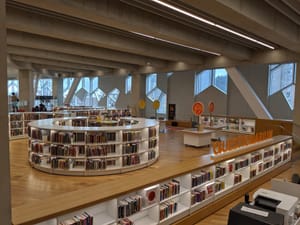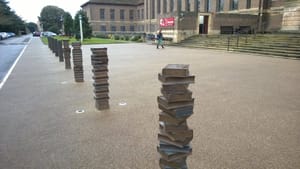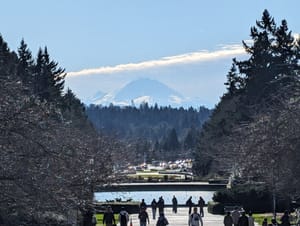A colleague pointed me at an article by the always interesting Judith Pearce about how the National Library of Australia is thinking about services in an age of ‘crowdsourcing‘.
In summary our goals in this area are to explore new models for collecting material; to provide services that support the creation and dissemination of knowledge by users; and to enhance opportunities for users to share ideas by interacting with us and among themselves. [jpearce1]
She describes the NLA relationship with Flickr, through which selected pictures are added to Picture Australia. The Flickr staging post puts the entry process closer to the user flow, as potential users may already be familiar with it, and it provides other relevent services. And by aggregating demand for the downstream Picture Australia, Flickr has increased traffic on that site.
She also describes Australia Dancing. The Library set up an associated site, Take Part, to gather user comments and input on the Australia Dancing site.
Finally, she discusses a new initiative, People Australia:
We have now initiated a project to implement a new People Australia service based on the Australian Name Authority File. The service will act as a portal for the discovery of Australian people and organisations by clustering entries created by partner agencies, with links to related resources. It will be based on a database of people and organisations with records contributed from a variety of sources including the Australian Name Authority File. [jpearce1]
This is particularly interesting as we have been looking at a similar initiative, mining worldcat to enhance authority files and exploring the value of such an approach as a rich entry point to Worldcat resources.
The article is framed by some discussion of Web 2.0 which can easily be skipped. What is interesting here is that a national library is imaginatively developing real services which show how library services are complementary to, and can be enhanced by, crowdsourcing approaches.



